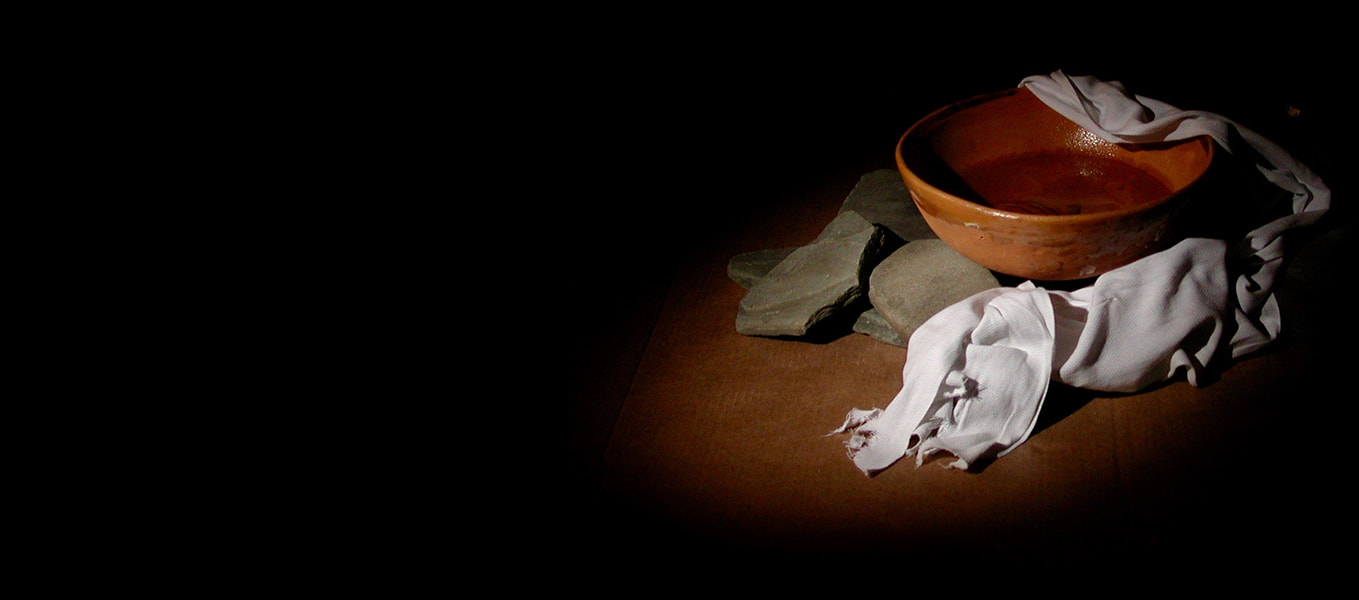Maundy Thursday: Luke 22
The sufferings of the Lord Jesus are incalculable. They accompanied him through life. His destiny was clear to him. He was born to die - as a sacrifice for sin. The looming event of the cross, the hostility of men, and the horrible darkness of the presence of evil, satanic and human, oppressed him. The horror of Calvary was foreknown by him. It was a shadow that always crossed his path. Therefore, when Christ came into the world, he said: “Sacrifice and offering you did not desire, but a body you prepared for me; with burnt offerings you were not pleased. Then I said, ‘Here I am - it is written about me in the scroll - I have come to do your will, O God’ ” (Hebrews 10: 5 - 7). Jesus felt the full force of Old Testament prophecy concerning him.
The sacrifices of the former covenant were not effectual in providing atonement for sin. They were pointers to the sacrifice of the Lord Jesus, the Lamb of God who would take away the sin of the world. Jesus was fully prepared and willing to die for sinners in obedience to the will of God. He was entirely a voluntary victim in agreement with the saving desire and design of the Father. The covenant of redemption was decided by the members of the Trinity before the creation of the world.
The uppermost desire of Christ was to spare his chosen ones through his substitutionary death. It was the prime intent of his life among us as is shown in his words to the disciples before the last Supper: “I have eagerly desired to eat this Passover with you before I suffer” (Luke 22: 15). Christ was eager to spare believers from wrath and death. But as the evening advanced, Christ’s eagerness undiminished, acute anguish penetrated his soul in the Garden. His prayer intensely urgent, the sweat of his brow streaming to the ground beneath like a flow of blood from a vicious head wound, his spirit overwhelmed at the impending abandonment of him by the Father, Jesus cried out of his utter desolation, loneliness, and fear, “Father, if you are willing, take this cup from me; yet not my will but yours be done” (Luke 22: 42). The expression of dread was real. The resolve to redeem the lost prevailed. Christ took upon himself the woe and doom due to us for our revolt against heaven.
TWO SONS IN PARALLEL
Good Friday: Genesis 22: 1 - 19
Isaac’s journey to the region of Moriah and the journey of Jesus to the portal of death bear many careful comparisons. Both were born as a result of miracle - Isaac to barren parents and Jesus of a Virgin. Isaac was the first in the Messianic lineage and Jesus is the fulfillment of the Messianic hope. Each was the only cherished son of their father - Isaac the son that counted for covenant purposes, in disregard of Ishmael, and Jesus the fulfiller of the covenant. Each bore the wood for their altar of sacrifice. Each journeyed to face death in the same location, for Calvary was in the region of Moriah as was the mount on which Isaac was to be offered. Through Isaac’s release by the provision of a ram as substitute we gain an insight into Christ’s atoning death. God would “see to it” that a victim would be found to die in our stead. Abraham was enabled “to see” the forthcoming figure who would provide our deliverance. “Your father Abraham rejoiced at the thought of seeing my day; he saw it and as glad” (John 8: 56).
UP FROM THE GRAVE HE AROSE
Easter Day: Mark 16: 1 - 8
Isaac was spared death but Jesus endured death in order to spare us. To spare means “to pass over”. Therefore, Jesus is our Passover Lamb, and the angel of judgment and death marks our pardon and safety in the Son of God, and avoids meting out our destruction. Because Jesus is risen, we who trust him are assured of our justification. What joy there is in the gospel of the empty tomb. Our substitute has put us right with God. Resurrection with Christ is guaranteed by the angelic messenger. “He has risen! He is not here” (Mark 16: 6).
RJS


 RSS Feed
RSS Feed
